The following constitutes a דבר תורה that I said at a קידוש on Shabbos Parshas Va’era held in honour of the forthcoming Yohr Tzeit of אבי מורי
ר שאול זעליג בן ר׳ יהודה הכהן בלבין ע’’ה
on the 3rd day of Shevat.
It is documented here לעילוי נשמתו.
The Pesukim in the Parshiyos that we read over this period are well known due to their ubiquity in the הגדה and the discussions arising thereof. In one of these, וארא, we read that Hashem commanded משה to speak to פרעה in order to secure the release of the בני ישראל.
בֹּ֣א דַבֵּ֔ר אֶל־פַּרְעֹ֖ה מֶ֣לֶךְ מִצְרָ֑יִם וִֽישַׁלַּ֥ח אֶת־בְּנֵֽי־יִשְׂרָאֵ֖ל מֵאַרְצֽוֹ
Come and speak to Pharaoh the King of Egypt so that he will send out the Children of Israel from his land
Shemos 6:11
Moshe, rather forthrightly, seemingly seeks to avoid doing as Hashem asks by disqualifying himself as an appropriate person for the task at hand! Hashem had commanded that Moshe seek the release of the Jews through the power of speech. Moshe had no confidence in his ability to generate a powerful speech and responded
הֵ֤ן בְּנֵֽי־יִשְׂרָאֵל֙ לֹֽא־שָׁמְע֣וּ אֵלַ֔י וְאֵיךְ֙ יִשְׁמָעֵ֣נִי פַרְעֹ֔ה וַאֲנִ֖י עֲרַ֥ל שְׂפָתָֽיִם
“Behold, the Jews didn’t listen to me and so how [do you expect that] פרעה will listen to me, [after all] I have a speech impediment”.
Shemos 6:12
This is not the first time that Moshe attempted to disqualify himself as an orator, Hashem’s chosen messenger, on account of a speech defect. At the episode of the burning bush, Moshe also expressed his speech impediment by saying that he was כבד פה וכבד לשון (Shemos 4:10). Commentators discuss the nature of the impediment, though that is not germane here.
How are we to understand
- The significance of speech per se in this context
- Moshe’s attempts at avoidance
Rav Soloveitchik (in Redemption, Prayer and Talmud Torah pp 58-60, as quoted in Chumash Mesoras HoRav) draws our attention to the Zohar, whose author is troubled by this interchange.
The Zohar states:
תָּא חֲזֵי, כְּתִיב (שמות ו׳:י״ב) הֵן בְּנֵי יִשְׂרָאֵל לֹא שָׁמְעוּ אֵלַי וְאֵיךְ יִשְׁמָעֵנִי פַרְעֹה וַאֲנִי עֲרַל שְׂפָתָיִם, מַאי וַאֲנִי עֲרַל שְׂפָתָיִם. וְהָא בְּקַדְמִיתָא כְּתִיב (שמות ד׳:י׳) לֹא אִישׁ דְּבָרִים אָנֹכִי וְגוֹ’ כִּי כְבַד פֶּה וּכְבַד לָשׁוֹן אָנֹכִי, וְקוּדְשָׁא בְּרִיךְ הוּא הֲוָה אוֹתִיב לֵיהּ, (שמות ד׳:י׳) מִי שָׂם פֶּה לָאָדָם וְגו’, וְהוּא אָמַר (שמות ד׳:י״ב) וְאָנֹכִי אֶהְיֶה עִם פִּיךָ, סַלְּקָא דַּעְתָּךְ דְּלָא הֲוָה כֵּן, וְהַשְּׁתָּא אָמַר וַאֲנִי עֲרַל שְׂפָתָיִם, אִי הָכִי, אָן הוּא מִלָּה דְּאַבְטַח לֵיהּ קוּדְשָׁא בְּרִיךְ הוּא בְּקַדְמִיתָא
Zohar 2:25b:5
Paraphrasing: is Moshe trying to “pull the wool over Hashem’s eyes”? Moshe had already stated in Shemos 4:10 that he had issues with his speech and Hashem had responded “Who do you think put a mouth on man” … In other words, don’t worry about any speech impediment. I [Hashem] can fix that for you! And yet, here we are, says the Zohar, and Moshe is again repeating (albeit using different words to describe his speech impediment) the excuse that he ought not be the person to represent the Jews in their quest to be freed from Egypt because of his speech impediment.
The Zohar continues:
אֶלָּא רָזָא אִיהוּ, מֹשֶׁה קָלָא, וְדִבּוּר דְּאִיהוּ מִלָּה דִּילֵיהּ, הֲוָה בְּגָלוּתָא, וַהֲוָה אִיהוּ אָטִים לְפָרְשָׁא מִלִּין, וּבְגִין דָּא אָמַר, וְאֵיךְ יִשְׁמָעֵנִי פַרְעֹה, בְּעוֹד דְּמִלָּה דִּילִי אִיהִי בְּגָלוּתָא דִּילֵּיהּ, דְּהָא לֵית לִי מִלָּה. הָא אֲנָא קָלָא מִלָּה גָּרַע, דְּאִיהִי בְּגָלוּתָא, וְעַל דָּא, שָׁתַּף קוּדְשָׁא בְּרִיךְ הוּא לְאַהֲרֹן בַּהֲדֵיהּ.
Zohar 2:25b:6
Here the Zohar begins to unravel the secret of the back and forth between Moshe and Hashem. There is a difference between “having a voice” and being able to choose the right words and “construct an appropriate oratorial speech”. Moshe felt that he was enveloped and constrained by the existential Galus/Exile. He felt that a Jew who was overcome with an intrinsic sense of exile could not have the self confidence in his ability to forge a charismatic sequence of powerful sentences which would sway פרעה and convince him that the Jews were no longer “servants in exile.” Could he convince Pharaoh through compelling oratory, that they had grown to be a more mature people, on their way to becoming a free nation, who would no longer tolerate being under the thumb of an oppressive regime? In short, Moshe argued that his impediment effected a speechless voice, a voice that could make sounds and indeed did make sounds on behalf of the Jewish people. Nonetheless, it was not the commanding voice of an orator capable of projecting a commanding influence.
Rav Soloveitchik explains that the arrival of Moshe had indeed advanced the cause of the Jews. Prior to his re-apperance, there was a deathly silence, the silence of extreme servitude, oppression and cruelty. In Egypt, the price of a Jewish life was cheap, and the oppression so great, that the Jews had lost their voice. Based on the descriptions in the Midrash, any Jew who mustered the temerity to issue a complaint or give voice to the inhumane conditions and extreme suffering that they had to endure, was quickly silenced through a death sentence. At best, ויאנחו בני ישראל the Jews issued a collective groan. That is, until Moshe came.
Forging Jewish destiny, when Moshe was confronted by the Egyptian man who killed a Jewish man, Moshe discovered a voice of lawful punishment. Courageously, Moshe killed the Egyptian and, suddenly, emerging from the silence of oppression, his lone voice manifested itself amongst the people. This was a brave voice, the voice of Moshe the leader – a voice which inspired the downtrodden Jews.
Moshe was a marked man after this episode and had to hide. Though Moshe had begun the process of revolt, and through these small steps the process of redemption from Egypt had commenced, even Moshe only considered himself an ordinary voice. Moshe did not feel that he possessed an imbued or acquired charisma which would give rise to an oratorial presence powerful enough to compel Pharaoh to understand that he was no longer dealing with a downtrodden rabble of servants. Moshe was lacking feelings of מלכות, feelings of national self-esteem, without which he did not have the tools to be the nominated speaker for the Jews.
And the Zohar expresses this
תָּא חֲזֵי, כָּל זִמְנָא דְּדִבּוּר הֲוָה בְּגָלוּתָא, קָלָא אִסְתְּלַק מִנֵּיהּ, וּמִלָּה הֲוָה אָטִים בְּלֹא קוֹל, כַּד אָתָא מֹשֶׁה, אָתָא קוֹל. וּמֹשֶׁה הֲוָה קוֹל בְּלא מִלָּה, בְּגִין דְּהֲוָה בְּגָלוּתָא, וְכָל זִמְנָא דְּדִבּוּר הֲוָה בְּגָלוּתָא, מֹשֶׁה אָזִיל קָלָא בְּלָא דִּבּוּר, וְהָכִי אָזִיל עַד דְּקָרִיבוּ לְטוּרָא דְּסִינַי, וְאִתְיְהִיבַת אוֹרַיְיתָא, וּבְהַהוּא זִמְנָא, אִתְחַבָּר קָלָא בְּדִבּוּר, וּכְדֵין מִלָּה מַלִּיל, הֲדָא הוּא דִכְתִיב, (שמות כ׳:א׳) וַיְדַבֵּר אֱלֹהִים אֵת כָּל הַדְּבָרִים הָאֵלֶּה. וּכְדֵין, מֹשֶׁה אִשְׁתְּכַח שְׁלִים בְּמִלָּה כְּדְקָא יֵאוֹת, קוֹל וְדִבּוּר כַּחֲדָא בִּשְׁלִימוּ.
Zohar 2:25b:7
It was only when Moshe went up to Har Sinai and the process of nation building was forged through the receiving of our Divine “Constitution” – the Torah – that Moshe grew to the extent that he felt possessed with the confidence and ability to express himself in the charismatic and powerfully effective manner of a leader of a people who had grown into a nation infused with a sense of מלכות self-esteem.
My father ע’’ה was a Holocaust survivor. Together with his parents, two brothers and sister, and through the agency of two righteous gentiles (Pictured: Felka (Feliksa) Galach with my father in Zawady in March 2000 with her medal)
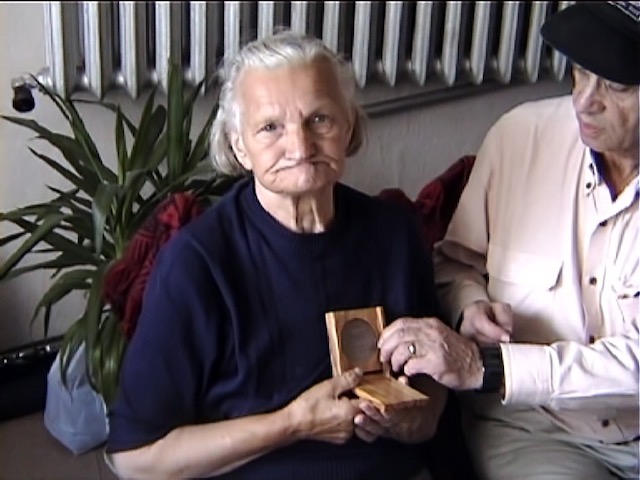
Family Balbin of Rawa Mazowiecka was holed up for 27 months, literally under the ground, in a hole, covered with straw, at the back of a barn in Zawady.
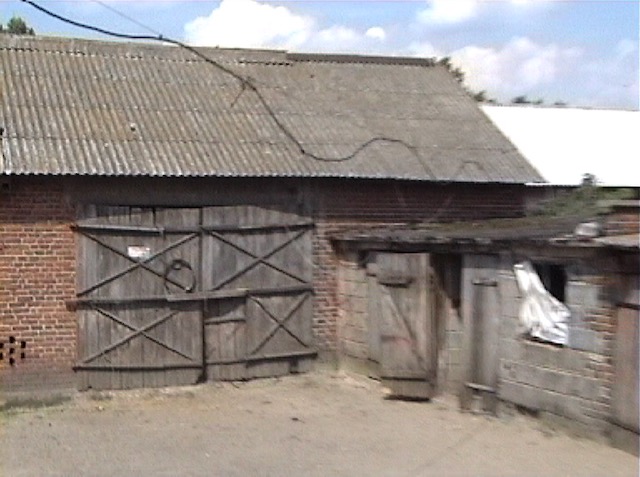
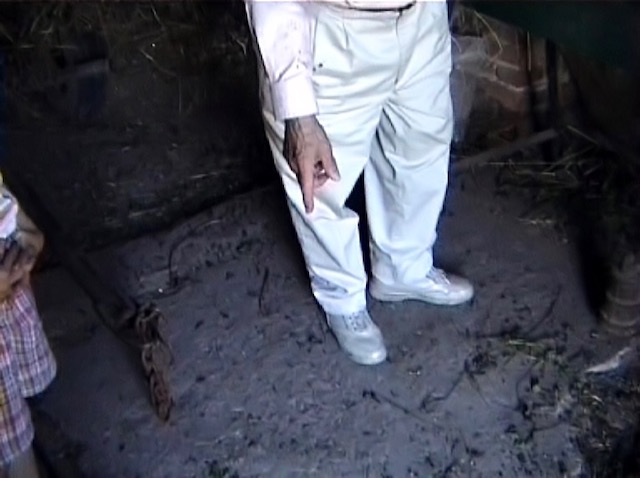
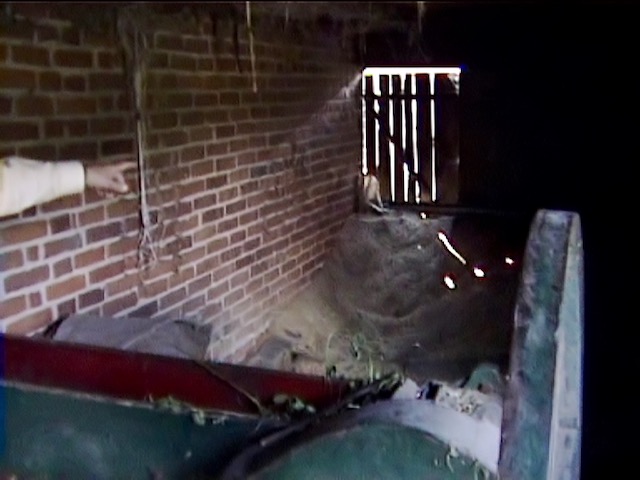
Those 27 months, akin to suffering in servitude, a monotonous but tremulous silence pervaded. Apart from my Zayda’s constant murmuring of Tehilim, there was only ויאנחו בני ישראל – the groans of suffering.
My father ע’’ה was not one of those survivors who was characteristically left with either a quiet or pained voice, void of speech. At the same time, he was certainly not an orator nor did he speak about his experience unless pressed. His post Holocaust speech could be described as “emancipated”, to the extent that he had stepped out of what was into what needed to be. There was a time when a courageous voice was needed and my Booba Toba’s defiance and bravery helped forge what he became.
At one stage, cousin Avraham הי’’ד and his parents הי’’ד, were also hiding in a nearby farmhouse down the road, and were slaughtered by the gentiles who had been harbouring them because those gentiles feared being killed. Jozef Galach, the father of Felka, also heard that those harbouring Jews would be executed and he confronted the family one day demanding that they leave. Suddenly, the relatively quiet and uncharismatic voice of silence morphed into a defiant roar. Booba Toba ע’’ה, who was all of 5 feet tall in high heels, stood up to the Galachs and exclaimed:
“You will die if you don’t continue to allow us to hide. Everyone will know what you have done. You must remain silent and allow us to stay. If we live, you will live. If we are killed then your fate is sealed”
A compromise was reached and for the next six months, Family Balbin emerged from the hole and hid, lying in nearby corn fields (and many close calls), while the Nazis conducted farm to farm searches in the area. Thank God, that passed and they returned to “the hole”.
Six million Jews were stifled and silenced without voice in unspeakable conditions — seemingly a continuation and escalation of the historical experience in Egypt. There was no charismatic Moshe to excise the Jews from the iron furnace of the Nazis ימח שמם וזכרם. Some lone voices, especially in a rare uprising or in the forests among partisans, were manifest, though they were few and far between. A proud nation had lost its collective voice.
During this deepest silence, submerged below the earth, my father ע’’ה found a voice. In an inspired moment of clarity, influenced by constant pining for redemption, my father discovered not only a voice but a defiant articulated sentence. He related his discussion with God:
“As I sat there, I made a solemn promise, a vow, to God. If he would spare me to live then I would undertake to build a home with children that identified with Judaism and continued the tradition.”
With those simple sentences, in a moment of hope, my father discovered charismatic speech. His silence begat an oratory that was compelling and thank God, he was spared to fulfil his part of the bargain. In the words of Rav Soloveitchik, he had acquired “the logical understanding of the teleology of the Galus experience, as well as firm faith in the destiny of of the slave-community”.
It didn’t end there. To this day, though my father was not an orator, a week doesn’t go by where a child or grandchild doesn’t exclaim “Zayda would have said … “ in response to a circumstance. Zayda didn’t stay silent. He rebuilt, and his voice found the avenue of speech, without impediment, as needed. His voice continues to envelop our living experience with an unending vitality.
יהי זכרו ברוך

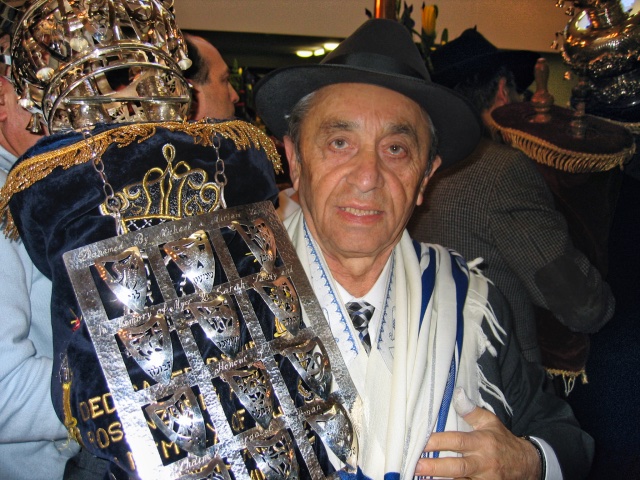
You must be logged in to post a comment.